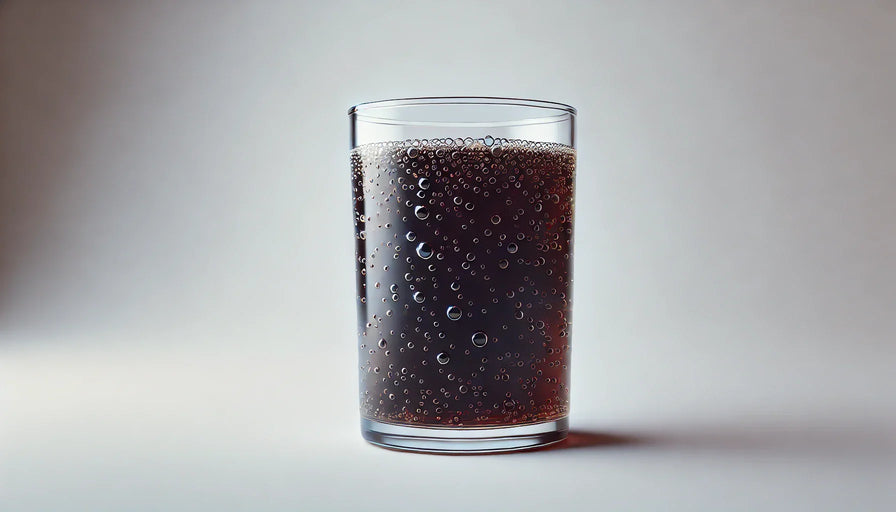
Can Dehydration Cause a Stroke?

Can dehydration cause a stroke?
Yes, severe dehydration can increase the risk of a stroke. Dehydration thickens the blood, potentially leading to reduced blood flow to the brain and an increased likelihood of clot formation, which can result in a stroke.
Dehydration is a common yet often underestimated condition that can have significant impacts on overall health.
While its immediate symptoms, such as dizziness and fatigue, are well-known, fewer people are aware of the potential connection between dehydration and serious medical conditions like stroke.
Table of contents
How does a stroke happen?
A stroke happens when the blood supply to part of the brain is interrupted or reduced, preventing brain tissue from getting the oxygen and nutrients it needs. This can occur due to a blocked artery (ischemic stroke) or the bursting of a blood vessel (hemorrhagic stroke).
Without prompt medical intervention, brain cells begin to die within minutes, resulting in potentially severe consequences.
If you think you've had a stroke, dial 911 and seek immediate medical assistance. Some symptoms to watch out for are:
- Sudden numbness or weakness in the face, arm, or leg, especially on one side of the body
- Sudden confusion, trouble speaking, or difficulty understanding speech
- Sudden trouble seeing in one or both eyes
- Sudden trouble walking, dizziness, loss of balance, or lack of coordination
- Sudden severe headache with no known cause

How dehydration affects the brain
Dehydration can profoundly affect brain health and function. When the body is deprived of sufficient fluids, the brain feels the impact, leading to a range of problems, including:
- Cognitive impairment: Dehydration can hinder focus, memory, and overall mental clarity, making it harder to concentrate or think clearly.
- Headaches and dizziness: Insufficient hydration reduces blood and oxygen flow to the brain, often triggering headaches or feelings of lightheadedness.
- Mood disturbances: A dehydrated brain struggles to perform optimally, which can lead to irritability, anxiety, or fatigue.
- Decreased coordination: In severe cases, dehydration can impair motor skills and coordination, increasing the likelihood of accidents.
Prolonged dehydration also raises the risk of lasting brain damage, such as a heightened vulnerability to strokes and other neurological conditions. Staying hydrated is essential for maintaining both short-term mental performance and long-term brain health.
Related read: What is aerated water?

How else can I prevent a stroke?
Strokes can affect individuals of all ages, but they are more prevalent among older adults. According to the Centers for Disease Control and Prevention (CDC), the risk of stroke doubles every decade after the age of 55.
In 2022, there were 1 in 6 deaths (17.5%) due to stroke in the United States.
However, it is important to note that strokes are not exclusive to older populations. Around 10% of strokes occur in individuals under the age of 50, highlighting that young adults and even children can be at risk.
Preventing a stroke involves adopting a healthy lifestyle and managing risk factors effectively. Here are key strategies to reduce your risk:
- Eating a balanced diet
- Exercise regularly
- Manage blood pressure
- Control blood sugar levels
- Quit smoking
- Limit alcohol intake
- Monitor cholesterol levels
- Stay hydrated with still or sparkling water
- Manage stress
- Attend regular check-ups
These actions, combined with awareness of stroke warning signs, can significantly lower your risk and improve overall well-being.
Related read: How Much Water Should I Drink Per Day?

Summary
Stroke prevention and recovery require proactive health management, including lifestyle adjustments and regular medical check-ups. Paying attention to key risk factors such as diet, exercise, blood pressure, and hydration can significantly reduce the chances of experiencing a stroke.
Recognizing stroke warning signs early, such as sudden numbness, confusion, or difficulty speaking, is crucial.
If you suspect you or someone else is having a stroke, seek immediate medical attention. Prompt medical care can save lives and improve recovery outcomes.
If you are recovering from a stroke, follow your healthcare provider's guidance to support healing and regain strength. Always prioritize your health and consult a medical professional with any concerns.
Recommended reading

How to Give Back During Thanksgiving 2025
Key takeaways Thanksgiving is a time to express gratitude and share with those in need. From volunteering at local shelters to donating food and essentials, there are numerous ways to give back to...

What Does Carbonation Do to Your Body?
What does carbonation do to your body? Carbonation alone typically has minimal effects; however, it can cause bloating and discomfort for some, and it may worsen acid reflux due to carbon dioxide ...

What Are the Health Benefits of Sparkling Water?
Summary Sparkling water isn't just a refreshing drink—it comes with surprising health benefits too. From aiding digestion to improving hydration, discover how sparkling water can be a healthy addi...